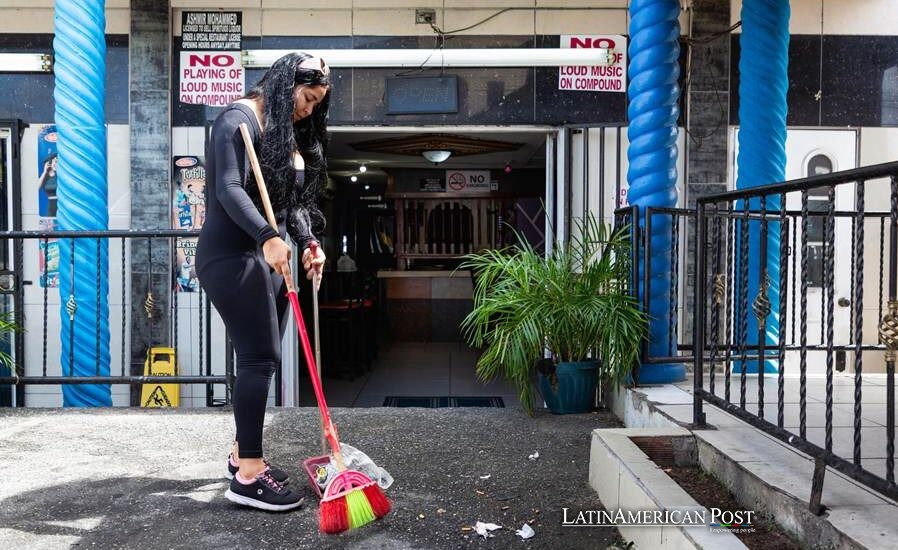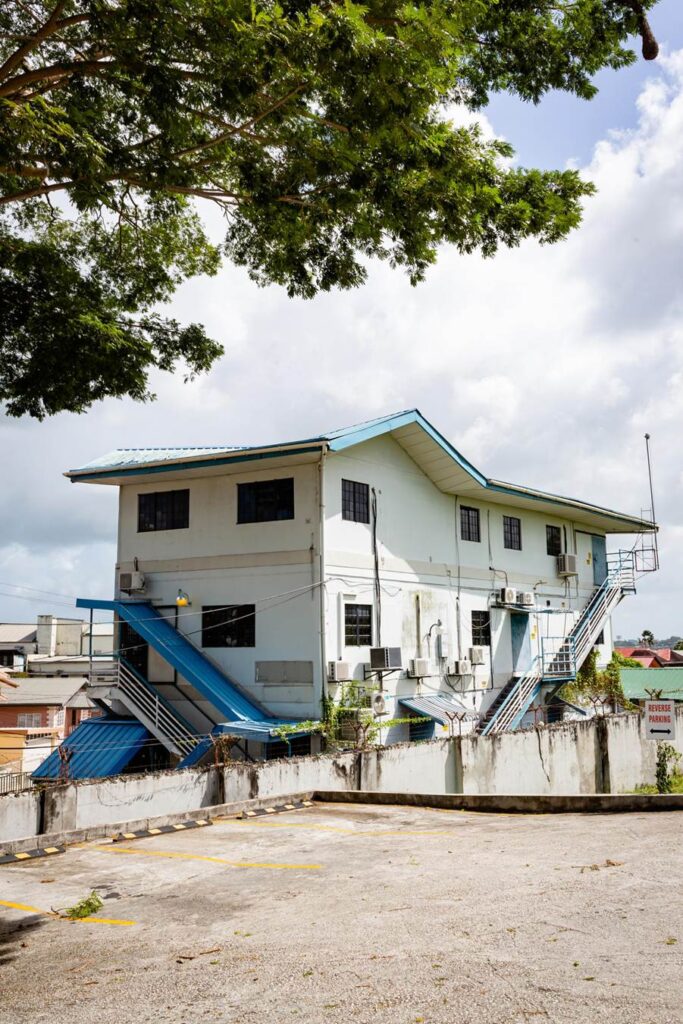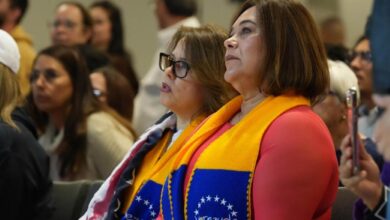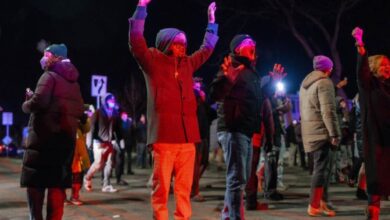A Leaked Memo, a State of Emergency, and Venezuelan Lives on Edge in Trinidad and Tobago

In Trinidad and Tobago, a leaked memo ordering mass detentions and a broad state of emergency has forced Venezuelan migrants into a defensive crouch. As fear spreads, EFE’s interviews reveal a community frozen between stalled paperwork, police sweeps, and a diplomatic storm gathering just offshore.
A Leaked Memo, a State of Emergency, and Fear
When Julie Ramírez escaped Venezuela in 2016, she thought she had crossed into calm. Trinidad and Tobago felt close enough to home to be familiar, yet far enough from Caracas’s turmoil to be safe. Now, nearly a decade later, the fear has returned, this time dressed in official language and legal threats.
“Anxiety has taken over the Venezuelan migrant community across Trinidad and Tobago,” the 70-year-old caregiver told EFE, explaining how neighbors ration grocery trips and avoid public spaces. “We don’t know who will be taken next.”
The shift began with a leaked government memorandum dated October 27, obtained by EFE and reported. The document instructed authorities to detain all undocumented foreigners, hold them at the Immigration Detention Centre “until repatriation,” and noted that a “mass deportation” of Venezuelans was under consideration.
Layers of fear thickened quickly. Trinidad and Tobago is already operating under a state of emergency, imposed July 18 and extended twice, granting police and defense forces expanded powers: warrantless entry, broad arrest authority, sweeping searches. Those powers, officials say, target a criminal network that allegedly threatened senior public figures.
For migrants, they land in the smallest corners of daily life. In Chaguanas, officers recently pulled over a taxi carrying several Venezuelans, including schoolteacher Teresa Fernández, whose work permit expires next month. “We are terrified. We can’t even take a taxi without wondering if we will be arrested,” she told EFE.
Humanitarian worker Angie Ramnarine of the La Romaine Migrant Support Group told EFE that fear has seeped into the mundane. “Even routine commutes feel risky now,” she said. “People are retreating indoors.”
Bar owner and beautician Marannys Guerra, who built her tiny bar and manicure room from scratch in southern Trinidad, put it more bluntly: “I’m afraid of losing everything I have built,” she told EFE.
Everyday Lives on Pause: Permits, Offices, and Legal Limbo
Enforcement alone would rattle any community. But pair it with administrative paralysis, migrants say, and lives begin to freeze in place.
Ramnarine told EFE that Trinidad’s Immigration Office in San Fernando temporarily closed, blocking renewals for migrants with expired or soon-to-expire papers. Many Venezuelans, she said, “simply couldn’t take time off work to renew documents, so they let them lapse.“
The numbers are stark. According to EFE, permits for registered migrants expire on December 31, 2025, yet the administration of Prime Minister Kamla Persad-Bissessar plans to renew only 727 of 4,237 pending applications.
For older adults like Ramírez, the math is brutal. Her documents are set to lapse in weeks, and she fears her age will be used to deny renewal. “I fear they will kill me if I return,” she told EFE, recalling how armed pro-government militants ransacked the café she once ran in Venezuela because she opposed Caracas.
Heavy-machinery operator David Rojas, who earns in two days at a sawmill what he once earned in a month teaching in Venezuela, voiced the same dread. “I have built a new life here. Now I fear it could disappear overnight,” he told EFE.
With enforcement rising and paperwork snarled, Trinidad’s Venezuelans describe a kind of crimmigration quicksand, anxiety about police stops colliding with expired documents they cannot renew. Employers hesitate to schedule workers. Parents reroute school pickups to avoid checkpoints. Families skip clinics and pharmacies. Even those with valid permits now worry that being swept up in a raid means proving their legality under pressure, in a second language, with no lawyer present.

Politics at Sea, Pressure on Land
Last month, the USS Gravely, a U.S. Navy destroyer, docked in Port of Spain as part of Trinidad and Tobago’s support for a U.S. military deployment in the Caribbean. The optics hit like flint on steel. Venezuelan President Nicolás Maduro publicly warned Trinidadians to stop Washington from “bringing a war to the Caribbean.” Diplomatic tension, already frayed, tightened another notch.
For migrants, these grand gestures translate into everyday uncertainty. A government aligning more closely with U.S. security aims is simultaneously contemplating mass removals to a neighbor ruled by the same administration that many Venezuelans fled.
Trinidad and Tobago faces three pressures at once: domestic demands for a firmer hand on public order, international expectations on human rights and migration governance, and a precarious diplomatic dance with Caracas. Meanwhile, its services-heavy economy relies quietly, but heavily, on migrant labor to staff bars, farms, factories, kitchens, and homes. The leaked memo might satisfy domestic calls for toughness, but carrying it out at scale requires flights, paperwork, deals with Caracas, and legal safeguards a small state may struggle to uphold.
What Comes Next: Capacity, Rights, and a Narrow Path Forward
The government’s goal is unmistakable: reassert control. But the approach carries peril. If enforcement becomes sweeping rather than targeted, Trinidad risks violating non-refoulement obligations by returning people to danger, overfilling detention centers, and eroding community trust built over the years.
EFE’s reporting shows how easily fear metastasizes when increased policing overlays administrative breakdown. Yet a narrower path exists. Trinidad and Tobago could: publish transparent criteria for 2025 permit renewals, issue “bridging documents” for applicants awaiting decisions, reopen and fully staff immigration offices, and provide legal-aid access at checkpoints, and prioritize enforcement against individuals who pose genuine threats, rather than neighborhood sweeps
None of these measures resolves the geopolitical tensions; Port of Spain and Caracas will still spar over U.S. ships and rhetoric, but they could offer breathing room for the thousands of Venezuelans woven into local neighborhoods, schoolyards, and workplaces.
For now, many of those migrants wait in suspended lives. Guerra watches customers drift away, fearing a single arrest could shutter both her bar and her salon. Fernández counts the days until her permit expires. Rojas saves every spare dollar in case he must hire a lawyer or move again. Ramírez, leaning on faith and memory, prays that officials see more than a passport stamp, that they know the woman who fled persecution once and fears she will not survive fleeing again.
The leaked memo is a policy document. The fear it unleashed is human. And as EFE’s interviews reveal, the future of Trinidad and Tobago’s migration policy will not be judged by its headlines or rhetoric, but by whether the country can balance order with dignity in the tense, intimate spaces where migrants live their lives.
Also Read: Hardball in the Hemisphere: How Trump’s New Order Fractures Latin America




